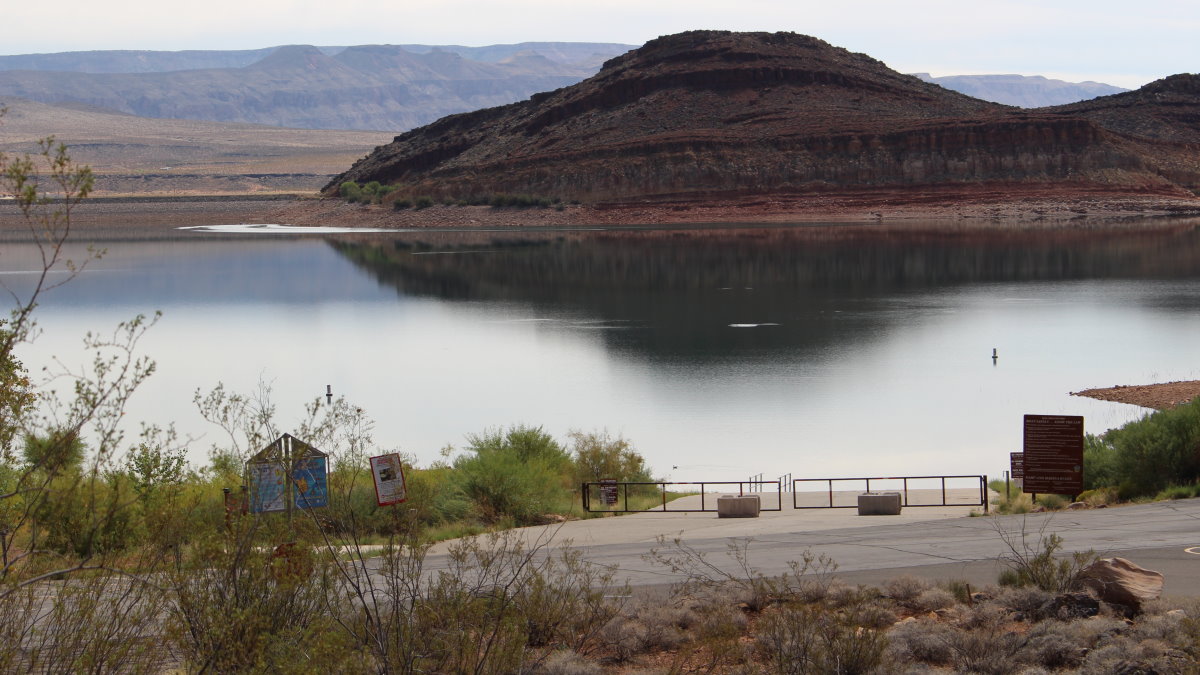
ST. GEORGE — Quail Creek Reservoir is briefly closing to the public July 11 and 12 while it undergoes a chemical treatment to remove algae. The algae is not a threat to public health but could potentially affect the quality of the drinking water.

Those in the Washington County Water Conservancy District will receive treated water from Sand Hollow Reservoir while Quail Creek Reservoir is undergoing treatment. The quality and delivery of the water will not be affected.
Approximately 30,000 pounds of copper sulfate crystals will be dropped into the water by helicopter for the treatment. Copper sulfate is commonly used in municipal and irrigation systems for the removal of algae.
According to the United States Department of Agriculture, copper sulfate is extremely toxic to fish and other aquatic animals in large enough quantities. The district uses its best management practices to keep any environmental impact to a minimum, according to a press release. Officials use an early application to reduce the dosage as much as possible and start treating the water from the shoreline, then moving toward the center to allow fish to move to deeper parts of the water, away from the chemicals.
The reservoir holds about 8.6 billion gallons of water. The 20,000 to 30,000 pounds of copper sulfate the district plans to use would amount to 0.3-0.4 parts per million, a fairly low dose that the district said will have minimal environmental impacts.
In the past, only fish that consumed copper sulfate crystals near the surface of the water were impacted by the treatment. Even this is a rare occurrence, according to district officials, averaging around six fish per treatment.
A dive team will locate the areas in the reservoir with the highest concentration of algae for target drops. The divers will monitor the drop areas and determine how effective the treatment has been.
The last chemical treatment of the reservoir occurred in 2014.
“Our job is to deliver a high-quality water supply to our cities. Treating our water sources is a routine and necessary step of that responsibility,” Brie Thompson, associate general manager for the district, said in the press release.
Quail Creek is not the only reservoir to close because of an algae problem. Lincoln Beach and Marina at Utah Lake closed June 29 after water tests revealed three times more bacteria than the threshold for health dangers, according to a KSL.com article.
Unlike Quail Creek Reservoir, algae bloom levels like those at Lincoln Beach and Marina pose a serious health risk for both humans and animals, the article said. The health risk prompted officials to close a portion of the lake until they deem it safe for recreational use. The areas of the lake that remain open are still under a warning, and visitors are advised to avoid areas with large amounts of algae.
Quail Creek is an off-stream reservoir fed from the Virgin River. The reservoir was built by the Washington County Water Conservancy District for $23.5 million in 1985. It was originally built as an essential storage facility and now provides water for Washington County.
Popular Quail Creek activities include boating, fishing, swimming and camping.
The reservoir can hold up to 40,325 acre-feet of water and is currently about 65 percent full. Water is typically measured in acre-feet, referring to the volume of water that would cover 1 acre to a depth of 1 foot – about 326,000 gallons.
The district’s other reservoirs, including Sand Hollow, will remain open to the public for recreational activities during the treatment.
Editor’s note: The dates of the closure have been updated per a subsequent press release by the Washington County Water Conservancy District.
Email: mshoup@stgnews.com
Twitter: @STGnews | @MikaylaShoup
Copyright St. George News, SaintGeorgeUtah.com LLC, 2018, all rights reserved.